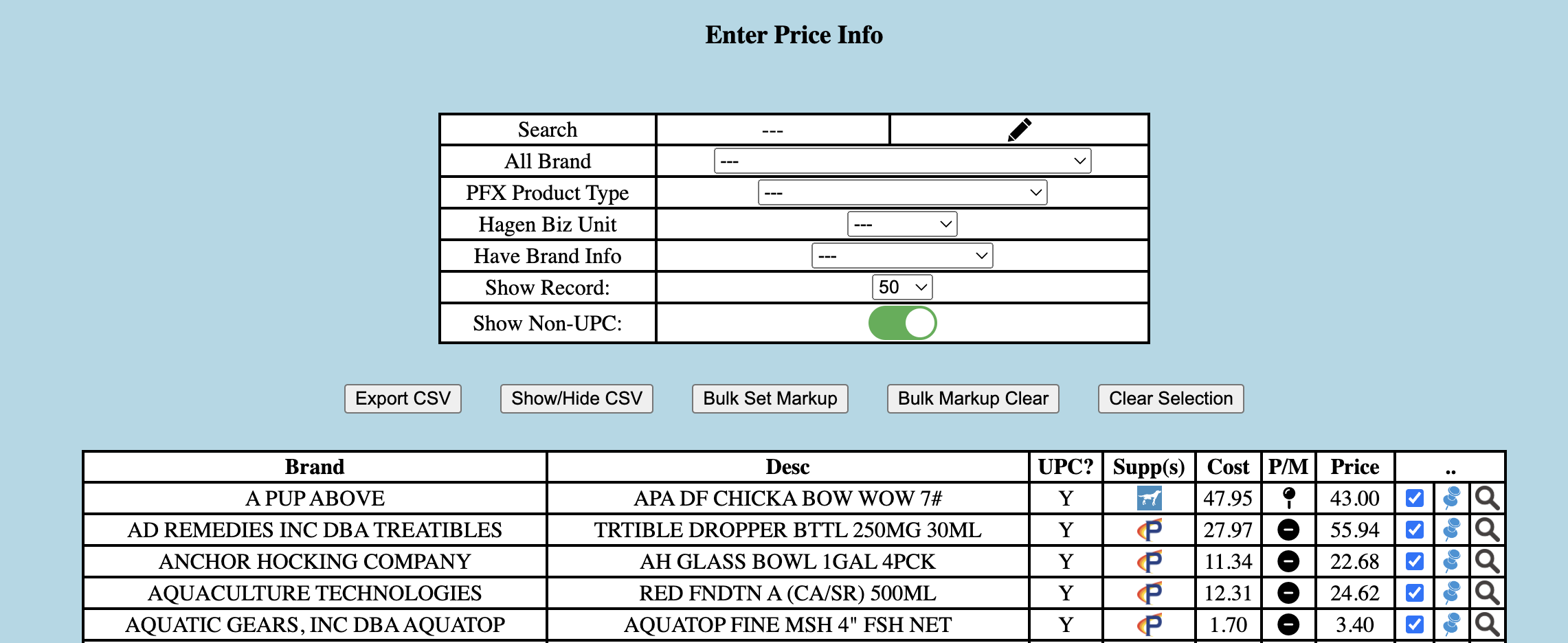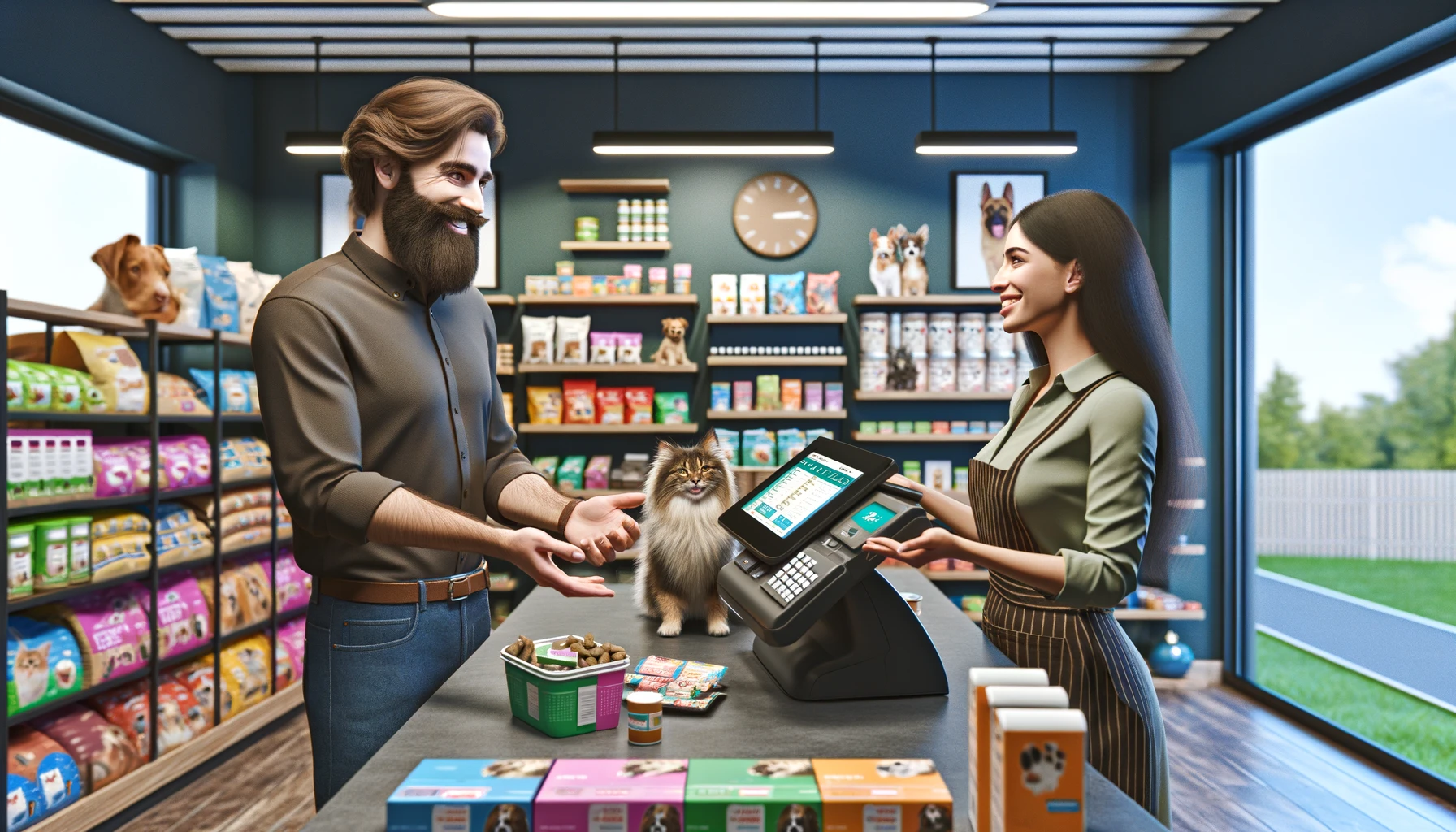Joe Payton is the owner of Scales and Tails Pet Supplies in Auburn, Maine. I met Joe on the small business section of Reddit, where he had commented that he couldn't find an off-the-shelf software solution for inventory management that met his needs. It was frustrating for him, because there were a lot of products that claimed to have all the required features. And what he needed to do didn't actually seem that hard. But for some reason nothing actually worked.
Joe's workflow was relatively simple. His store sells thousands of different products. These products are supplied to him by a handful of distributors that supply goods from dozens of brands. The distributors publish data files that contain information about their products, and a lot of that information, such as MSRP, is relevant for the sales process. On the other side, the store has a point-of-sale system that is used by the cashier. The POS system needs to be provided with the most up-to-date information about prices, product descriptions, and images, from the distributor data files. So far, so good.
The complexity comes in a few ways. First, each distributor has their own data format for the product information. Some of the distributors supply a lot of info, while others just have a few fields for each SKU. Second, there is a significant overlap in the their product lists: sometimes two distributors provide the same exact product (they do not produce the items, they resell the items from manufacturers). Third, Joe needs the ability to control the stores final pricing numbers, to reflect sales, promotions, or lack of supply. Fourth, for some of the products, there is useful additional information that can be obtained directly from the manufacturers - again in a different format.
Put together, this is a complex data management problem. But when I discussed the problem with Joe, I realized it was a great match for the WWIO platform. The amount of data is not excessive: there are tens of thousands, but not millions, of records. Only a single user would be editing or updating records at any one time. A WebWidget app could easily provide a fast, custom interface for entering and updating markup information. And it's quite easy to import data files from external sources into the SQLite DBs that power WWIO apps. Joe was a bit skeptical on our first call, since he had been burned by other developers and products, but I convinced him to give it a try.
The result is a product that perfectly matches Joe's needs. It has a few simple screens that allow him to upload new data files. There's another tab that allows him to download the result of the data merge, for upload into the POS system. There's really just one complex screen, that provides ways to search and filter products in a variety of ways, and to do bulk updates on a selection of items (for example, set the markup for all the Nulo brand items to 50%). Here's a screenshot of that page:

This simple custom tool has saved Joe a lot of work and money. "With a custom widget, we were able to take a process that required a single person working full time to manage Excel sheets to a simple process that takes just minutes a month," he says.

